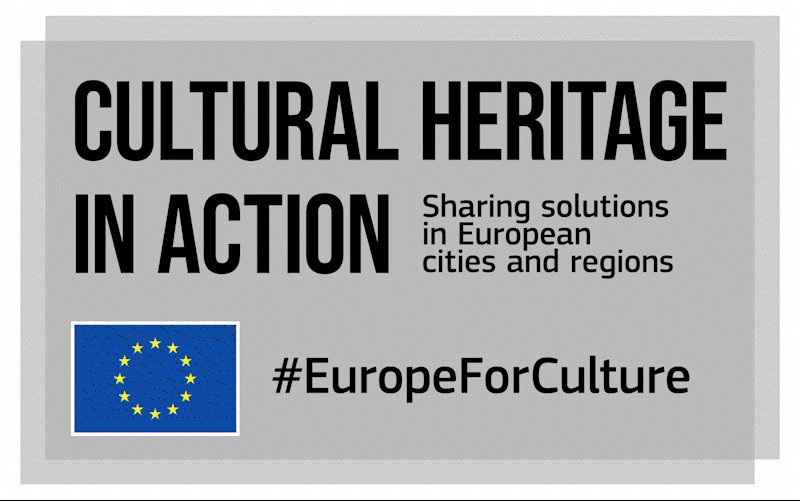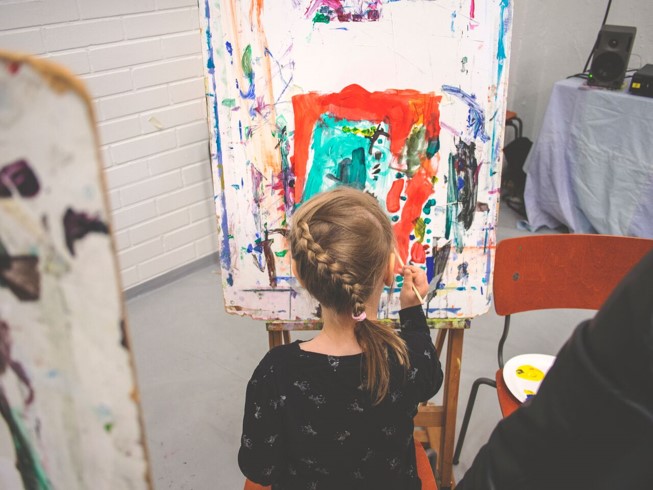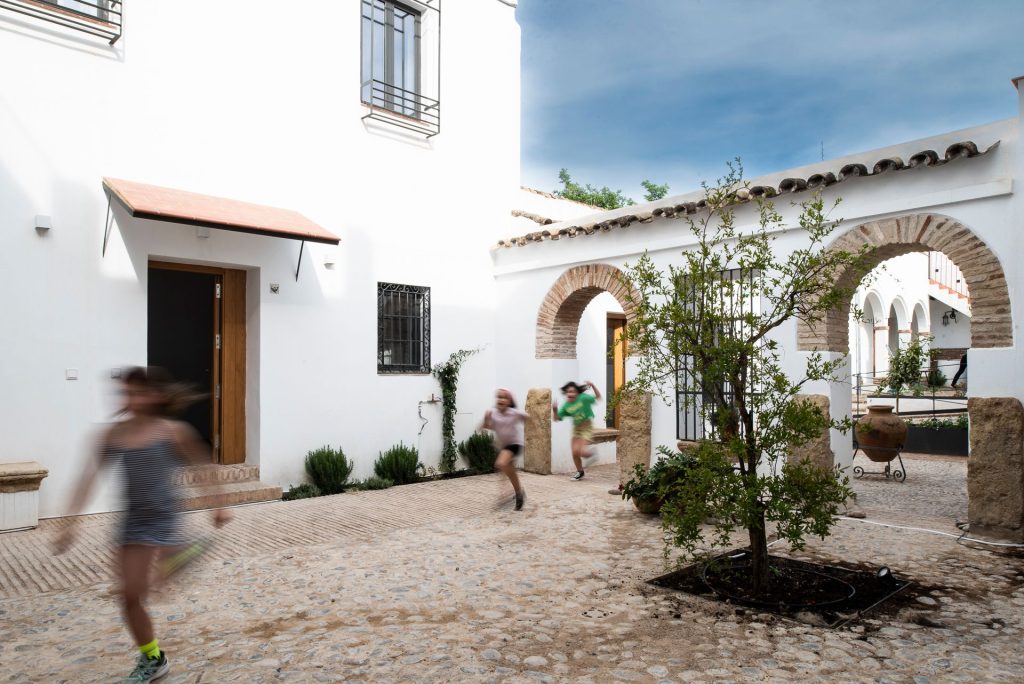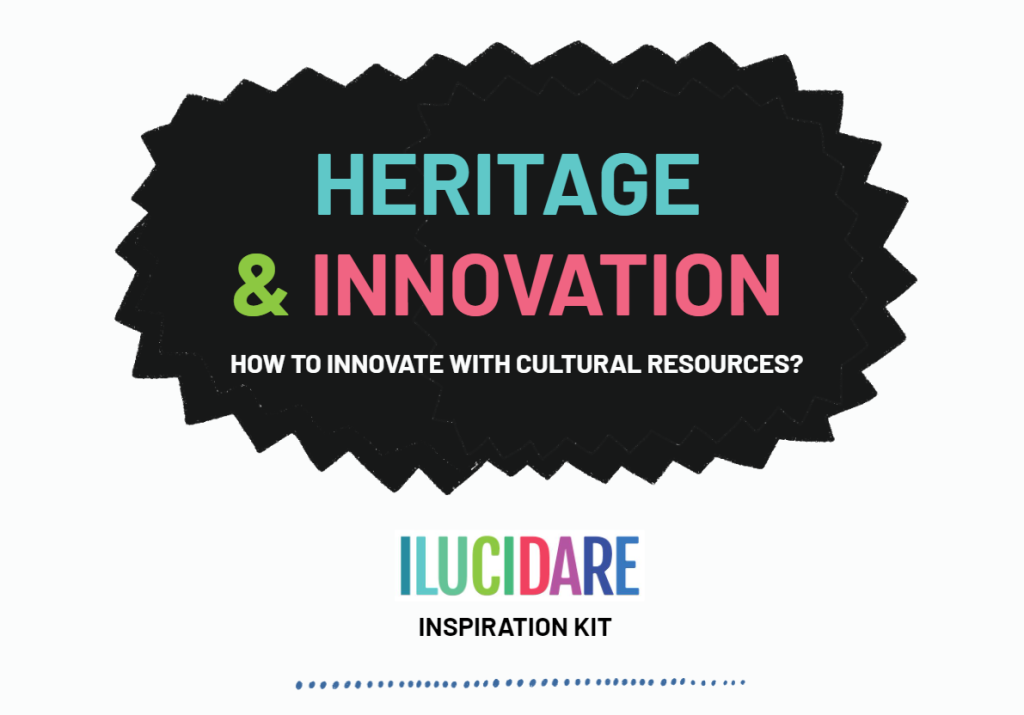“Act local, learn and share global!”
This motto has been guiding the Story Valley project led by the city of Leeuwarden and presented during the first sharing stories webinar of Cultural Heritage in Action.
The webinar explored the relations between cultural heritage, education, training, and literacy. How can local heritage promote new learning environments in education and help strengthen key competencies for young people? How can cities and regions support learning through, with and about cultural heritage?
Schools are more than just a building where young people passively receive an education. Schools are open, cultural spaces where students can be actors of their education thanks to culture and heritage products, services, or activities.
And when it comes to heritage, it is a win-win situation. Using local stories, cultural heritage, and traditions, students can acquire or improve skills and competencies such as literacy, cultural awareness, and cultural expression. Besides, raising awareness of local heritage is vital in keeping European heritage alive for future generations.
European cities and regions create opportunities for young citizens to discover and engage with their cultural roots while continuously improving key competencies and learning differently. Inspirational examples from Leeuwarden, Edinburgh, and Helsinki show what can be achieved when education, training, and youth engagement meet heritage.
“Culture, you take it with you everywhere you go!” Rim Bleeker, teacher at Friesland College in Leeuwarden, Netherlands
In Leeuwarden and its partner cities, the Erasmus+ Story Valley project uses visual, audio, and digital materials to help reinterpret student stories by combining oral history and creative literacy techniques. Students come together from different backgrounds and cultures and work together to practice their English and national language and learn about each other’s culture.
The cooperation between Friesland College in Leeuwarden, Edinburgh College and Multimedia and Graphic Technology Secondary School in Ljubljana aims to inspire students from different countries to read, write and speak in another language and to use their creativity to translate their stories to new media and platforms. This way, students can strengthen their skills in literacy and language creatively.
Like Story Valley, Culture United is a project funded by Erasmus + where Edinburgh collaborates with Dundalk, Leeuwarden, and Oulu. Culture United uses cultural events and heritage festivals to introduce multidisciplinary teaching methods in local primary schools. The activities proposed by the project appeal to the children’s interest and natural enthusiasm, using this energy and curiosity to engage them in learning and being inspired differently.
The project has already had many positive impacts:
- Pupils found new ways to express themselves creatively, gained confidence in performing and new friendships!
- Teachers: learned to deliver creative learning workshops and made interdisciplinary learning enter their classroom
- Festival strengthened their connection with the city, increased profile, gained new audiences by engaging with schools and parents, and accessed funding for creative learning workshops
- Such a project also helped the city support the creative and cultural sector by supporting the artists participating in the creative learning programmes.
“If you have creative learning programmes within your cities, why not consider using a festival or an event and the artists that are in there to help deliver it within the classroom?” David Waddell, Edinburgh City Council
At the starting point of these creative learning programmes are two fundamental questions: do children have equal access to culture? What is the minimum that children should experience and learn about the culture and heritage?
The Culture Leap project in Finland sought to find answers to these questions. From 2015 to 2018, Culture Leap increased cultural education plans in Finland. Cultural Education Plans are a public programme for schools that ensures that all children and young people can experience their heritage. The project produced an online tool that enables municipalities to independently prepare a Cultural Education Plan based on their local and regional heritage.
In Finland, cities can adapt the national curriculum to their local context. It allows them to teach with a local perspective, making the learning more exciting and relevant to students. Adopting Cultural Education Plans is a way for municipalities to foster the creative potential and attractiveness of the area, recognising and appraising the local characteristics. The project helped schools and teachers find a balance between timetables, curriculum goals and the adoption of a structured and qualitative cultural education for the benefit of the children. Children gained an opportunity to experience art and participate in the local culture.
Culture Leap won the Grand Prix of the European Heritage Awards / Europa Nostra Awards in 2018 together with Children´s Cultural Centres.
“Adopt the children’s point of view, look at this from their level: are they getting the cultural heritage education that they deserve?” Hanna Lämsä, Executive Director, Association of Cultural Heritage Education in Finland
Activities within schools fit into the broader missions of the cultural organisations, so there is an easy connection to make between them. Schools have to be prepared to enter the world of cultural heritage and its institutions. Municipalities can have this role of facilitator for cultural institutions to develop proper cultural education connected to the local or national curriculum. In addition, cities must inform cultural institutions about existing cultural education programmes and the requirement for good cultural heritage education within schools. Through projects, municipalities create a range of information and digital tools to help secure this need for input from both sides.
Participation and use of these tools require sustained investment from the city’s staff to raise awareness and ensure both schools and cultural organisations are sufficiently proactive. The concept of trust between public administration, teachers, pupils and cultural organisations is crucial to building up successful and lasting cooperation between cultural and educational institutions.





